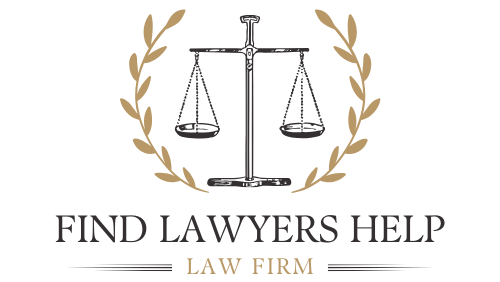
Understanding Liability: Who Is Responsible for Your Injuries?
Understanding Liability: Who Is Responsible for Your Injuries?
Accidents are an unavoidable aspect of life, and when they happen, it’s crucial to determine who is liable for the injuries incurred. Liability, in legal terms, refers to the responsibility of one party to compensate another for harm or damage caused. This article aims to clarify the concept of liability and examine the various parties that may be held accountable for injuries.
Understanding Liability in Personal Injury Cases
When dealing with injury claims, individuals often turn to personal injury lawyers who have established records of success. These legal professionals play a vital role in assessing liability and advocating for their clients’ rights. Their expertise is essential for securing compensation for those injured due to the actions or negligence of others.
Establishing Liability
Establishing liability is a fundamental element in personal injury cases. It requires demonstrating that someone’s actions or negligence directly resulted in the injuries sustained. This process involves holding an individual or entity accountable for their role in causing harm, whether it stems from a slip and fall incident, a car accident, or medical malpractice.
The Importance of Legal Representation
Why Hire a Personal Injury Lawyer?
Navigating the legal landscape of personal injury claims can be daunting. Here are several reasons why hiring a personal injury lawyer is beneficial:
- Expertise in Personal Injury Law: Personal injury lawyers specialize in this area of law, which means they are well-versed in the nuances of liability, negligence, and compensation. They understand the legal standards that must be met to establish a strong case.
- Thorough Investigation: A skilled lawyer will conduct a comprehensive investigation into the circumstances surrounding your injury. This includes gathering evidence, interviewing witnesses, and consulting with experts to build a solid case.
- Negotiation Skills: Many personal injury claims are settled out of court. Lawyers have the negotiation skills necessary to advocate for fair compensation from insurance companies or opposing parties. They know how to counter lowball offers and push for the amount you deserve.
- Trial Experience: If a fair settlement cannot be reached, your lawyer will be prepared to take your case to trial. Their experience in court proceedings can significantly impact the outcome of your case.
- Contingency Fee Basis: Most personal injury lawyers work on a contingency fee basis, meaning they only get paid if you win your case. This arrangement allows you to pursue your claim without upfront costs, making legal representation accessible.
Common Types of Personal Injury Cases
Understanding the types of personal injury cases can help you recognize when you may need legal assistance:
1. Car Accidents
Car accidents are one of the most common causes of personal injuries. Liability can involve multiple parties, including drivers, manufacturers (in cases of defective vehicles), and even municipalities (for poorly maintained roads).
2. Slip and Fall Accidents
These incidents often occur due to unsafe conditions on someone else’s property, such as wet floors or uneven surfaces. Establishing premises liability is crucial in these cases.
3. Medical Malpractice
Medical malpractice occurs when healthcare professionals fail to provide the standard of care expected in their field, leading to patient harm. Proving negligence is essential for these claims.
4. Workplace Injuries
Injuries sustained while on the job can lead to workers’ compensation claims or personal injury lawsuits against third parties if negligence is involved.
5. Product Liability
As mentioned earlier, product liability cases arise when consumers are harmed by defective products. This area covers a wide range of items, from electronics to pharmaceuticals.
Steps to Take After an Accident
If you find yourself injured due to someone else’s negligence, here are steps you should take:
- Seek Medical Attention: Your health is the top priority. Get medical help immediately, even if your injuries seem minor.
- Document Everything: Keep detailed records of your injuries, treatments, and any expenses incurred as a result of the accident.
- Gather Evidence: If possible, collect evidence from the scene of the accident—photos, witness contact information, and police reports can all be invaluable.
- Avoid Discussing Your Case: Be cautious about discussing your case with anyone other than your lawyer. Statements made can be used against you later.
- Consult a Personal Injury Lawyer: Reach out to a qualified personal injury attorney as soon as possible to discuss your case and explore your options for pursuing compensation.
The Role of Negligence
Negligence is a key factor in personal injury claims. It refers to the failure to exercise reasonable care, leading to harm to another person. Negligence can occur in various situations, including motor vehicle accidents, medical errors, or premises liability cases. Identifying negligence involves analyzing the actions or inactions of the responsible party to see if they deviated from the expected standard of care.
Product Liability
Product liability comes into play when injuries arise from defective or dangerous products. This aspect of liability is particularly significant when consumers are harmed by faulty items. Manufacturers, distributors, and retailers may be held accountable if their products cause injuries. Ensuring product safety and adhering to quality control standards is essential in preventing such incidents.
Premises Liability
Premises liability pertains to injuries occurring on someone else’s property. Property owners are legally obligated to maintain a safe environment for visitors. Any injuries resulting from their negligence can lead to legal liability. Hazardous conditions such as slippery floors or inadequate security can contribute to accidents, making it crucial to assess whether property owners have fulfilled their duty of care.
Workplace Injuries
Workplace injuries raise important questions about accountability. Employers are legally required to provide a safe working environment for employees. When accidents occur at work, it’s vital to determine if employer negligence contributed to the incident. Factors such as compliance with safety regulations and provision of necessary safety equipment must be evaluated. Injuries at work often lead to workers’ compensation claims for medical expenses and lost wages.
Shared Responsibility
In some cases, multiple parties may share liability for an injury—a concept known as third-party liability. This arises when the actions or negligence of more than one party contribute to the harm suffered by an individual. Shared responsibility may involve joint liability, where multiple parties are collectively accountable for the injuries sustained.
Conclusion
Understanding liability is essential for seeking compensation and justice following an injury. Liability can be established through various means, including negligence, product liability, premises liability, employer responsibility, and shared responsibility among multiple parties. This knowledge empowers individuals to take appropriate legal action.When confronted with the complexities of personal injury claims, individuals should seek guidance from experienced personal injury lawyers. These legal experts possess the knowledge necessary to navigate the intricacies of liability and advocate effectively for their clients’ rights. They are crucial allies in securing compensation for medical expenses, lost wages, and pain and suffering endured due to the actions or negligence of others.
